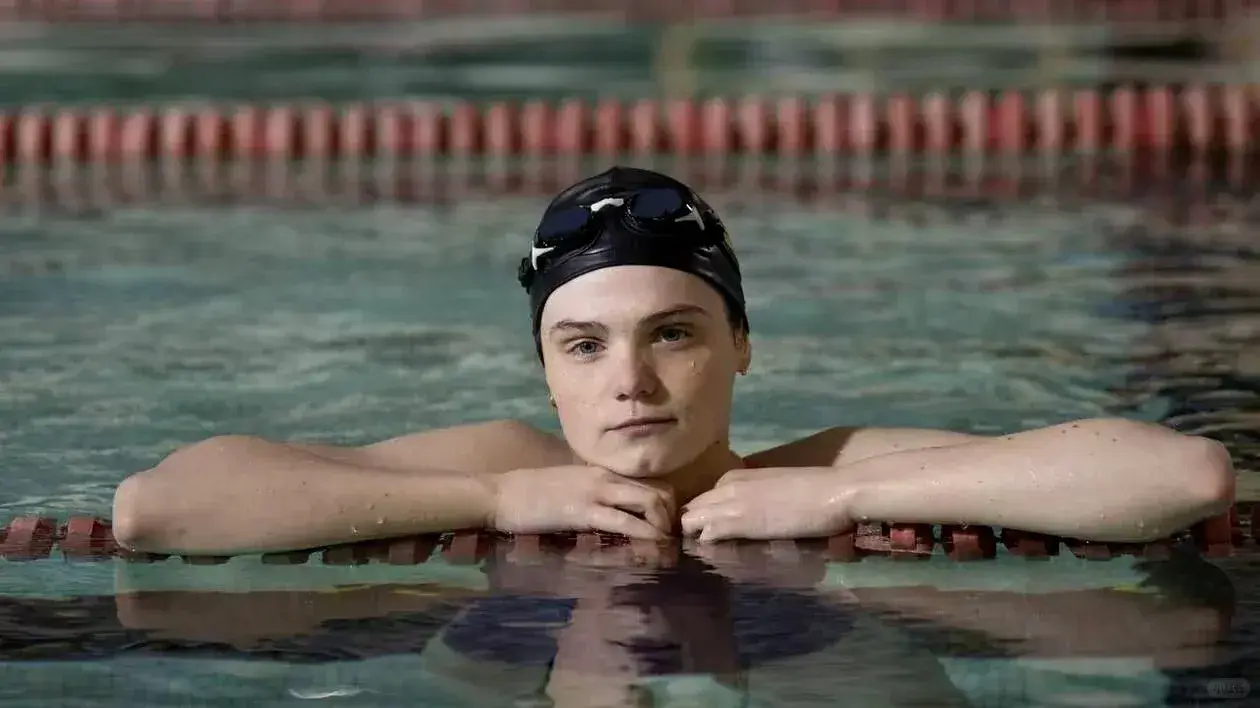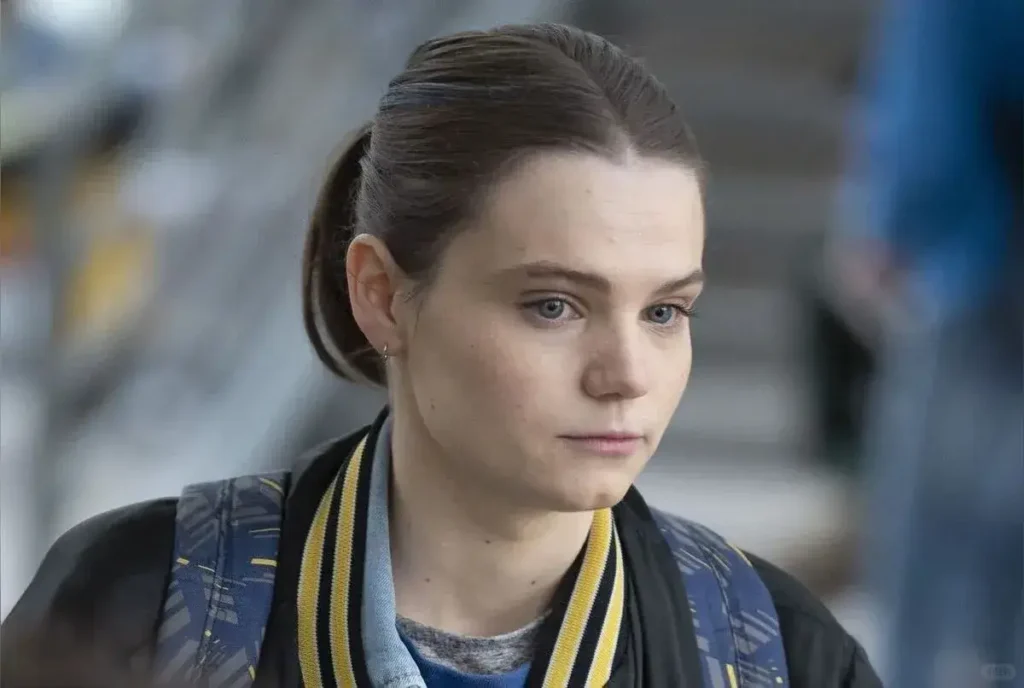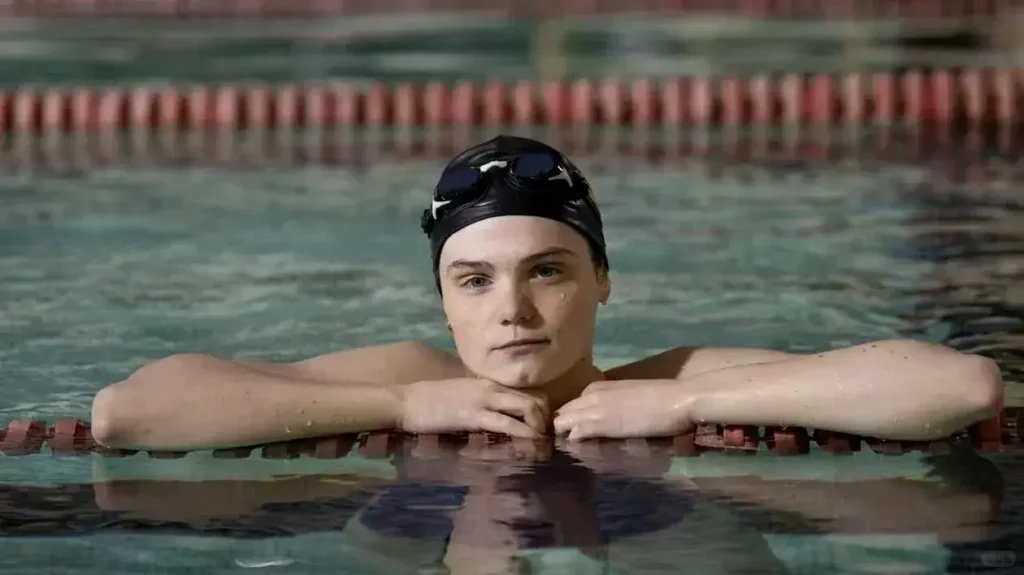Set in a present-day French suburb, La vie devant toi is a tender yet realistic story of two teenage girls falling in love while navigating the treacherous terrain of adolescence, sports pressure, religious conservatism, and homophobia. It’s a film that asks: what does it take to live your truth in a world not yet ready to accept you?

Violette, a 16-year-old competitive swimmer with Olympic dreams, has decided to come out and live her sexuality openly. Her parents, supportive and progressive, move cities to help her train with a top coach. At her new school, she meets Lisa, a quiet chess prodigy from a conservative Catholic family.

Their connection is immediate, but while Violette flourishes in her freedom, Lisa remains closeted, fearful of her family’s judgment. The two experience first love in its purest form—awkward, joyful, passionate—but their relationship is soon tested when they’re assaulted for holding hands in public.
As the girls navigate trauma, family reactions, and social expectations, La vie devant toi becomes a poignant exploration of what it means to choose love in a world of prejudice.
La vie devant toi Cast
Charactor

A determined teen swimmer who embraces her lesbian identity early and boldly. Her physical confidence masks a deep need to be loved and understood.
Zoé Héran
Zoé Héran made her acting debut in Céline Sciamma’s Tomboy (2011) and returns more than a decade later with remarkable emotional depth. Her portrayal of Violette is equal parts fierce and vulnerable—a standout performance in queer cinema.

A shy chess player caught between first love and fear of rejection, Lisa’s internal conflict mirrors that of many closeted teens.
Maïra Schmitt
Maïra Schmitt’s nuanced performance captures the quiet agony of hiding who you are, particularly under the weight of religious family expectations.
Director

Sandrine Veysset
Sandrine Veysset is a renowned French filmmaker best known for her sensitive portrayals of female characters, rural life, and social hardship. She first rose to prominence with her debut Will It Snow for Christmas? (Y aura-t-il de la neige à Noël ?, 1996), which received critical acclaim and won the prestigious Prix Louis-Delluc. In La vie devant toi, Veysset brings her signature realism and empathy to a new generation. With a gentle yet unflinching lens, she explores queer teenage love, family tension, and societal prejudice. The film’s emotional strength lies in its balance—neither melodramatic nor detached, but grounded in lived experience.
MOVIE HIGHLIGHT
This film celebrates emotional intimacy over physicality, focusing on identity, agency, and the complexities of growing up queer.
Violette’s family offers a model of acceptance; Lisa’s reveals how deeply prejudice can run—even behind closed doors.
The film affirms legal accountability when a homophobic bully is punished—showing that violence isn’t without consequence.
Violette’s swimmer body symbolizes youthful strength and the discipline it takes to live authentically.
La vie devant toi Review
Review


La vie devant toi is a powerful slice-of-life queer drama grounded in contemporary French society. The film touches on a wide range of social themes—homophobic violence, coming out, family dynamics, school bullying, and internalized shame—without ever feeling preachy or overwhelming.
Violette is a luminous lead. As a driven swimmer, she embodies strength and clarity; as a girl in love, she is tender and brave. In contrast, Lisa is cautious and repressed, molded by a family that threatens “conversion therapy” rather than compassion. Their dynamic reflects the real-life gap between support systems and silence.
While the film includes little sexual content, its emotional intimacy is powerful. A standout moment shows Violette getting attacked for holding Lisa’s hand—both brutal and truthful, a reminder of how visibility can still come at a cost. Yet the film counters despair with a quiet optimism: in law, in chosen families, and in self-assertion, there is hope.
The directing style leans into realism: minimal score, naturalistic dialogue, and close-up camera work that lets us breathe with the characters. Viewers may be reminded of Céline Sciamma’s Tomboy or Water Lilies, especially given the physicality and restraint of young queer expression.
The open ending reflects the film’s message best: utopia doesn’t exist, but resistance does. And love, even fragile and new, is still worth defending.
